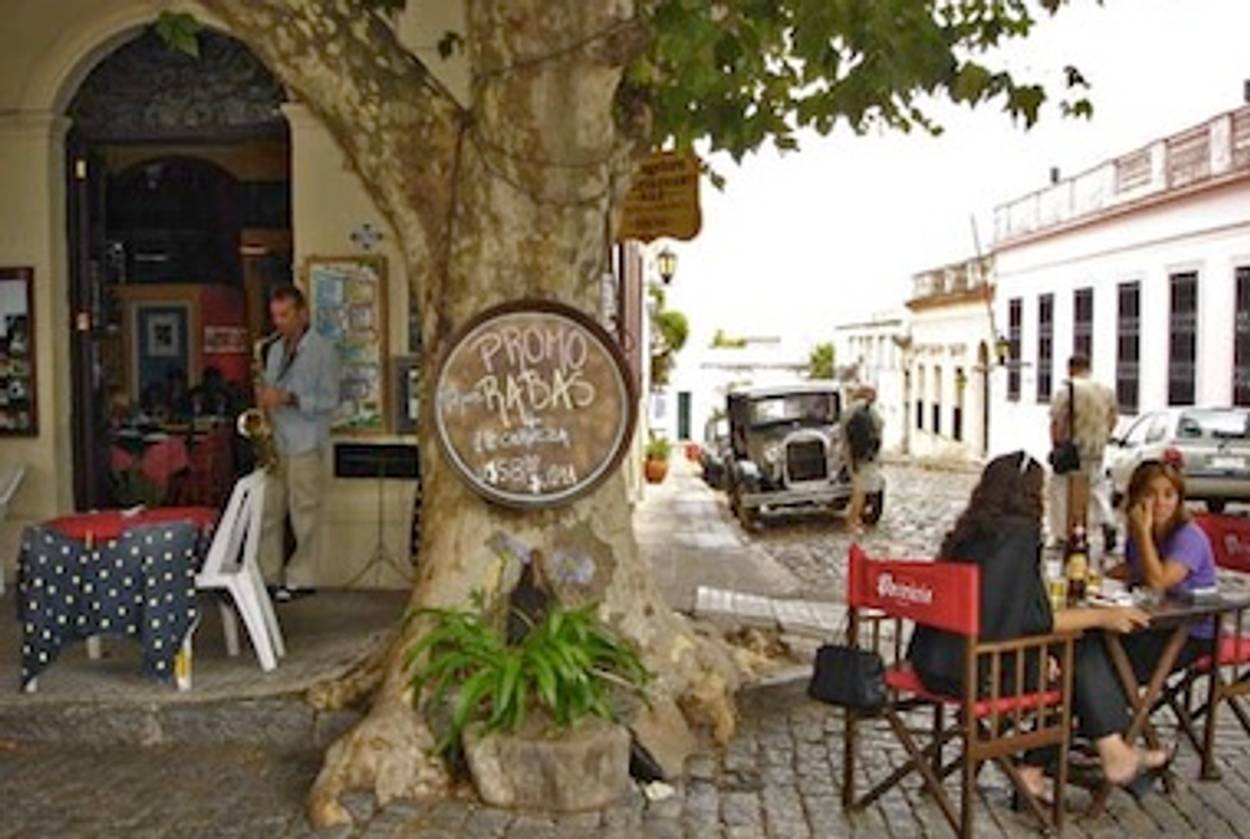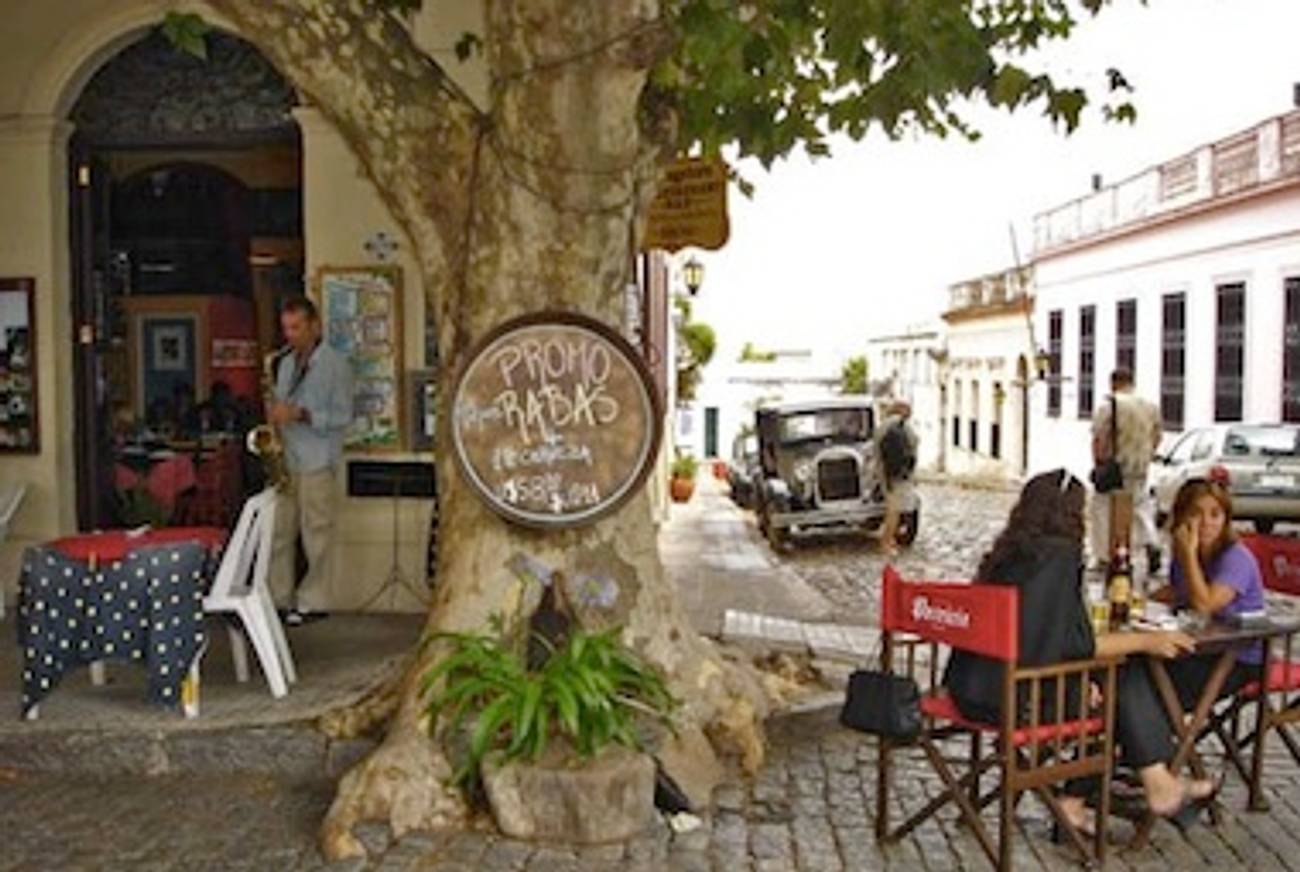Uruguay’s Bygone Jewish History
Remnants of Colonia del Sacremento reveal city’s Jewish history




Jewish life may not be the first thing to come to mind when you think about Uruguay. Some estimate the Jewish population sits at around 20,000, although the numbers weren’t always that big. Samuel G. Freedman wrote about the history of the community while researching a book about his mother’s life (we interviewed him about it back in 2005), but in the domain of Jewish history, Uruguay may be better known by some for hosting Nazis who fled Europe than for having a robust Jewish population.
Despite this, various rabbis and tourists recently visiting the town of Colonia del Sacramento in Uruguay have pointed to a mikveh dating back as far as the early 1700s as proof of an old Jewish community there. From the Times of Israel:
Although the Jewish roots of Colonia have not been explored as thoroughly as those of other South American or Caribbean cities, Dolores Sloan, President of the Society for Crypto-Judaic Studies, acknowledges that the findings make sense considering the history of Sefardi Port Jews in the Atlantic world.
“When ruins are unearthed, the presence of what could be a mikveh often identifies the site as having been a synagogue,” says Sloan.
From various accounts it seems that the community in Colonia had two waves of Jewish immigration, one likely stemming from the Spanish Inquisition, which led many of the Jewish inhabitants to live as either New Christians or Crypto-Jews practicing in secret, and a second wave that followed after more lax laws were established in the 1800s.
As a testament to the wave of immigrants, one quiet block boasts a synagogue whose property deed dates back to 1880.
But the vacant building whispers the latest chapter in the long coming-and-going narrative of Colonia´s Jews. Despite the second influx of immigrants, there hardly seems to be a trace of Jewish life in the city. The synagogue doors remain locked and a bakery, clothing store and bar named Exotica have all occupied the space in the last few decades.
Related: Fierce Detachment [Tablet Magazine]
Uruguay Profile [JAFI]
UNESCO site in Uruguay points to a forgotten Jewish past [Times of Israel]
Adam Chandler was previously a staff writer at Tablet. His work has appeared in the New York Times, the Wall Street Journal, the Atlantic, Slate, Esquire, New York, and elsewhere. He tweets @allmychandler.